

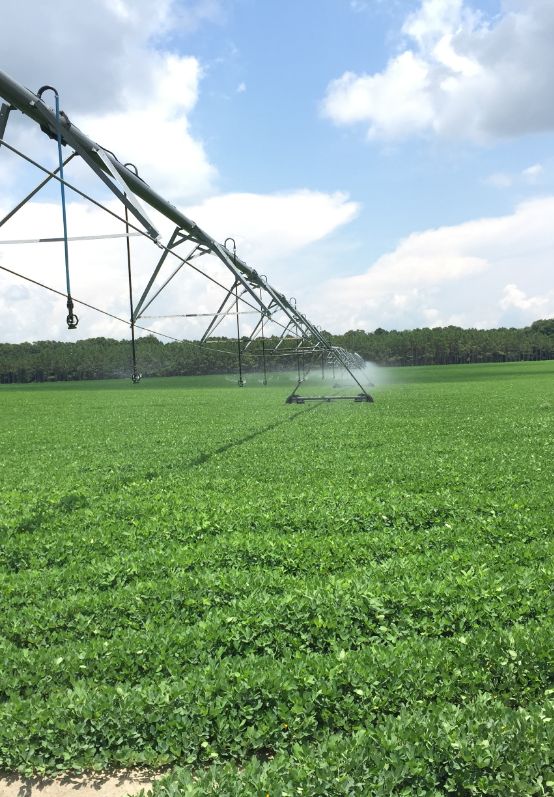
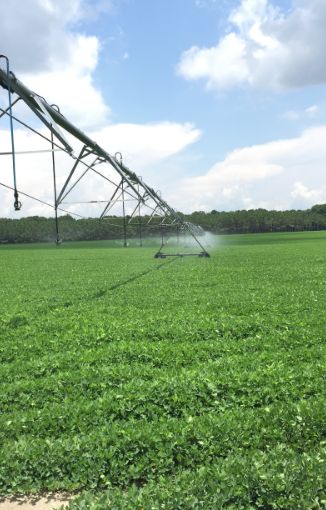
实现合理的增长
要实现进步,并不意味着要付出任何代价。我们致力于建立一个可持续发展、相互联系的花生行业。在我们业务所在地,我们会保护行业利益相关者,管理着公平的市场。
对我们来说,我们做生意的方式与我们的产品同样重要。这就是为什么我们积极与供应商合作,制定更高的劳工标准,致力于环境保护,倡导相互尊重的工作场所。
我们不会止步于此。
了解Agrocrops
增长是我们的宗旨
如果没有增长,我们就无法生产出优质的花生产品。下面介绍了我们如何取得更高产量的。
合约耕作
我们会为种植者监测和控制花生作物的质量和产量。通过与政府、非政府机构、农民生产者组织(FPO)、信托机构、协会和农民合作,我们有效整合了价值链的上下游。农民兄弟们可以从这项环节中受益:
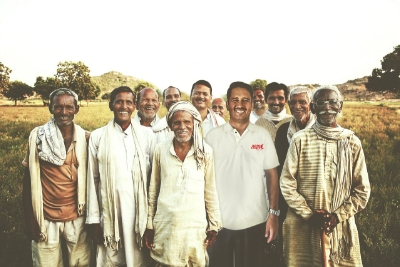
商业耕作
Agrocrops还租赁土地进行大规模商业和机械化耕作。耕种面积从100英亩到500英亩不等。我们的自留地按照我们公认的质量规范生产出高产的花生。
我们不仅有专业的农艺师团队,还能获得美国最新的农场技术和栽培方法。所以,我们能够不断地提高生产力。
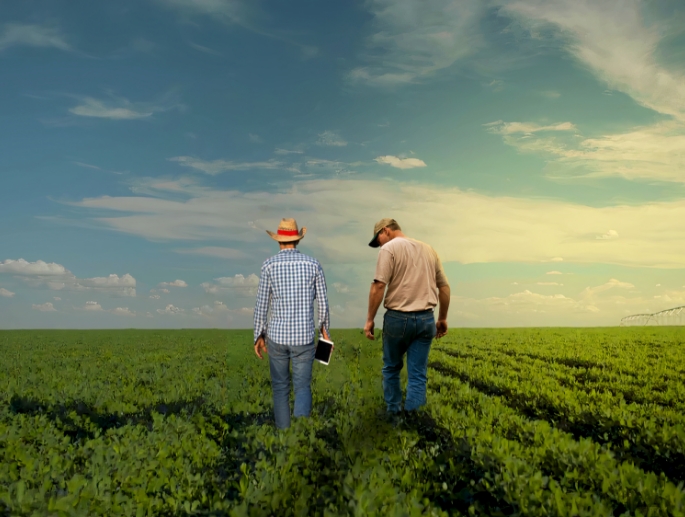
种子培育
我们在可持续发展方面作出了郑重的承诺,这促使我们专注于种子培育,确保农民兄弟的种子拥有优秀的品质。仅在印度这一个国家,种子行业就拥有价值5亿美元。我们的供应链分配机制正在努力重新设计这个行业,旨在提高花生生产力。我们与ICRISAT、ICAR和其他政府组织紧密合作,帮助农民提高产量。
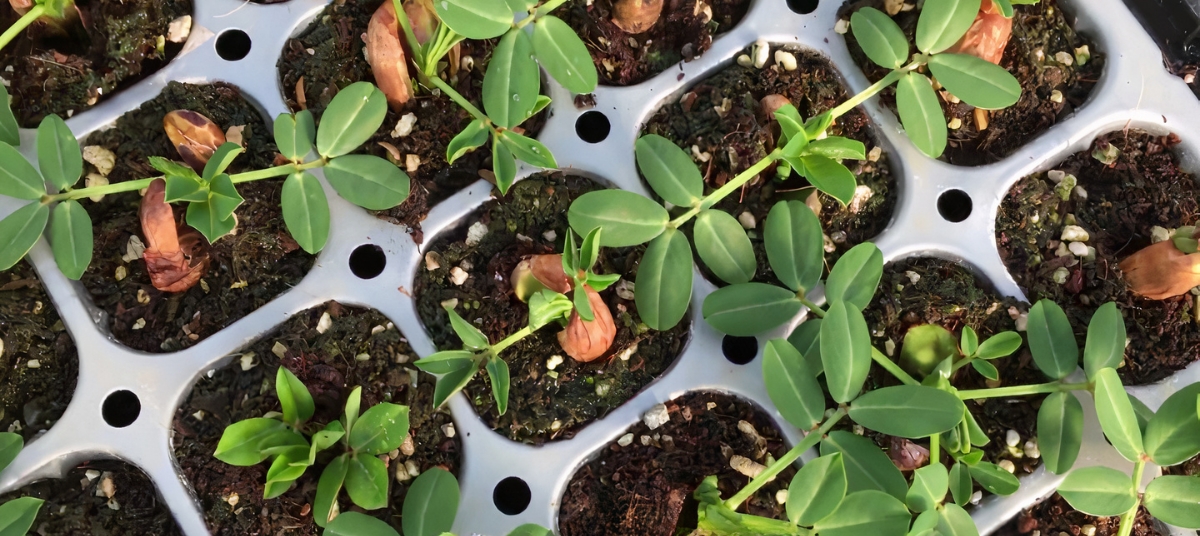

杜绝童工
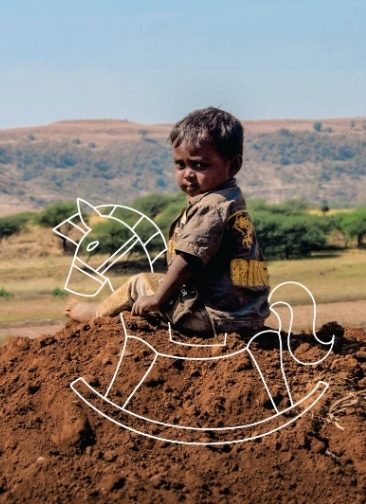
然而,世界各地仍有数百万儿童被迫在恶劣的条件下工作。我们反对一切形式的儿童剥削行为,并致力于建设一个让他们摆脱痛苦的未来。
您可以了解我们在促进更加繁荣的花生生态系统方面的实践。
Sustainable actions
Impactful Engagement with FPOs revealed at CCD's MABIF Event
Agrocrops participated at the CCD’s (Covenant Centre for Development) recent buyer-seller meet in MABIF, Madurai, on February 1, 2024. Engaging with groundnut-producing FPOs across Virudhunagar, Pudukkottai, Madurai, and Tirunelveli Districts, Agrocrops showcased upstream activities and discussions delved into farm gate procurement, prompt payments, farmer training, and the dissemination of high-yield seeds like Girnar 4&5.
The focus extended to supporting FPOs in obtaining certifications like Fair Trade and Global GAP. Addressing prevalent challenges in groundnut farming, including seed purity and aflatoxin issues, Agrocrops charted a clear path forward. FPOs and NGOs expressed interest in collaborating with praising the initiatives for the upcoming season. They are ready to sell produce and partnering with Agrocrops in Crop Insurance, Finance, IOT, and CO2 reduction efforts.
 - Copy.jpg)
Sustainable actions
Achieving Excellence in India's First Fairtrade-Certified Peanut Exporter
We are thrilled to announce the successful acquisition of the Fairtrade certification for our peanut Farmer Producer Company. Making history, we proudly stand as the first Indian exporter to ship Fairtrade-certified groundnuts globally.
The momentous occasion unfolded at the Annual General Meeting on 27.09.2023, where the Fairtrade certificate was ceremoniously handed over to Nallavur Farmers Producer Company President P. Sangetha and BOD V. Rukumani.
The distinguished presence of MSSRF's Dr. Sowmiya Swaminathan added prestige to this event, marking a significant leap towards ethical and sustainable agriculture.
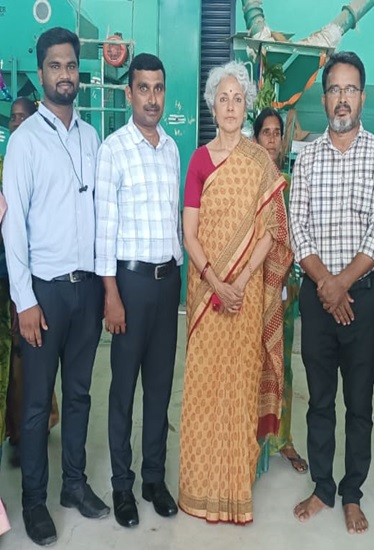
Sustainable actions
Empowering Virudhanagar Agriculture: AGROCROPS & VAS GREEN's Peanut Revolution
In a pioneering partnership, Agrocrops and Vas Green FPC joined forces for sustainable farming with HOPE SEED (GIRNAR-4) in Virudhunagar. Employing advanced precision farming over 30.5 acres, 21 farmers witness a significant groundnut productivity surge. The 1-acre field harvest reveals an impressive 13-15 quintals, validating the success of data-driven analysis.
This alliance prioritizes Sustainable Farming Practices, emphasizing environmental conservation and long-term viability. Preliminary results indicate transformative growth, marking a promising era for sustainable agriculture. Concurrently, the High Oleic (Girnar-4) groundnut harvesting season begins in Tamil Nadu, spanning 150 acres.
Contract farming, buyback assurances, and free seed distribution support 150 farmers, saving Rs 7,000 to 8,000 per acre, with yields showing a notable increase of 50-100 kg per acre.
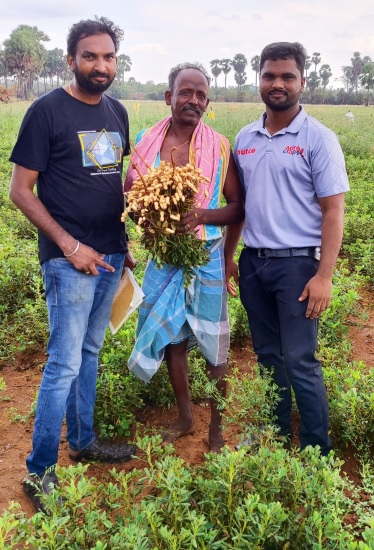
Sustainable actions
Empowering Women Through Quality Education
Agrocrops is dedicated to providing top-tier education to economically disadvantaged, physically challenged young women, including orphans and those dependent on single parents for support.
Our mission focuses on hearing- and speech-impaired women pursuing bachelor's degrees at renowned institutions like St. Louis College for the Deaf and Dr. Mgr. Janaki Women's College. We aim to empower these resilient individuals through our unwavering support, breaking down barriers and fostering inclusivity.
By extending educational opportunities to this deserving group, we are transforming lives and contributing to a more inclusive and equitable society.
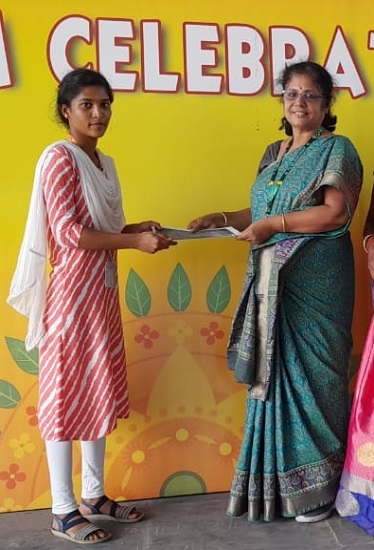
Sustainable actions
To measure is to control. Agrocrops started its carbon footprint calculation across the value chain of the peanut industry by a baseline measurement. We then initiated an action plan to reduce our footprint without affecting our customers or suppliers. Agrocrops’ carbon footprint policy is embedded in its strategic business model, processes, and systems to ensure that it attains a lower carbon footprint with parallel activities.
Therefore Agrocrops is able to declare its carbon footprint in all of its commercial documents and for all of its consumer products. This is a step above the benchmark practices in the industry. Climate change is affecting both agriculture and the environment. As a leader in the agriculture industry, we are committed to providing technologies, services, and training to help farming become carbon neutral as well as reducing the overall climate footprint of our operations. We have long worked with farmers to increase soil health and biodiversity – two key pillars of regenerative agriculture.
We are now extending our focus to measure the amount of carbon dioxide that is captured in the soil, helping farmers manage and reduce the greenhouse gases contributed by agriculture. We will also continue our longstanding work to enhance biodiversity on agricultural land and improve soil health. At the same time, we will reduce the emissions from our own operations and those of our entire supply chain, adding to our efforts towards carbon-neutral agriculture.
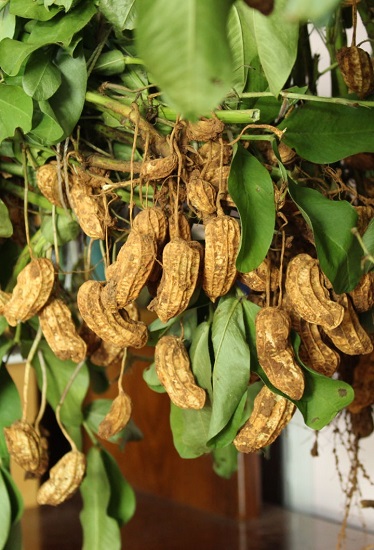
Sustainable actions
Agrocrops signed a farming contract for peanut crops with the well-established MSSRF farmer producer organisation located in Dindigul, Tamil Nadu, India. MSSRF is part of the M. S. Swaminathan Foundation and NGO. M. S. Swaminathan is the founder of the green revolution and was the winner of the first World Food Prize in 1987.
Through this contract, Agrocrops aims to interact with 1,000 farmers covering a span of 800 to 1000 acres.
Agrocrops will pay a premium price to these farmers to enable better earnings, thereby improving their livelihoods. Agrocrops is committed to peanut farmers and enabling hybrid models of business with farmers that develop the upstream ecosystem.
Apart from paying a premium price to these farmers, Agrocrops will also share profit margins and post-harvest management support such as mechanical drying.
By converting to Fairtrade peanuts, Agrocrops will provide peanut farmers in its supply chain not only with the Fairtrade Minimum Price for peanuts, but also nearly $xx in Fairtrade premiums.
Farmer organisations are empowered to democratically determine how to spend those premium funds, whether it be on community projects, farmer education, or farming inputs like mechanisation, fertilisers, or seedlings.
Agrocrops continues to shift its focus towards sustainability as part of a comprehensive global peanut strategy, which includes transitioning to more eco-friendly production. “We've put sustainability high on our new agenda and hope to inspire other peanut producers to be more thoughtful about their participation in the peanut value chain,” said Saravanan Lokasundaram, Agrocrops’ CEO.

Sustainable actions
Building a traceable and food-safe production system requires diligence mixed with innovation. Our traceability programme track multiple elements across economic, geographical, environmental, and social spheres, and attributes of the crops, stakeholders and participants of the industry.
We’ve named this programme “Every Nut”. Meaning that we are able to track and trace every ton of peanuts that we handle, process and supply to our snack producers and customers.
We ensure that the products we supply to our customers are free from contamination or adulteration as part of our quality and food safety compliance programmes.
Agrocrops’ front-loading of our capital expenditure focuses on the highest food safety aspects of processing peanuts and peanut products. We have, at times, become the bellwether example to the industry in adopting technology from other industries, and bringing them to the peanut industry.

Sustainable actions
Despite the growing evidence that plastic pollution is extremely hazardous to human health and the environment, landfills continue to grow in size. Up to 30% of global landfills
consist of Styrofoam, which can take over 500 years to break down. To address this issue, we redesigned our consumer packaging to save up to 0.23 tons of plastic a year and have created a strategy to look at packaging from an environmental point of view which could save us thousands of tons of plastic.
Our focus on rightsizing not only delivers significant plastic savings but also reduces our packaging cost by 25%. Smaller packaging means less carton spacing when the products are being transported, which means larger quantities are being shipped in each transportation cycle, which in turn leads to less storage space being needed – the list goes on.
To go beyond the ordinary, we declare our sustainability focus on each of the packs we sell to customers. This educates them to compare products and spend their money wisely, whilst also helping to save the planet for the next generation.
.jpg)
Sustainable actions
Sustainability is at the heart of every action Agrocrops takes.
With its global scale, Agrocrops recognises its responsibility and the opportunities for being a catalyst for change, driving widespread change with sustainable sourcing to protect scarce resources, improve livelihoods, and build both product quality and brand awareness.
Building on our long-term commitment to sustainable sourcing, we are focusing on peanut crops that have the biggest positive impact on nature. We work with a range of stakeholders to help develop internationally recognised standards and verification systems like Fairtrade and GAP.
We also work with smallhold to large-scale farmers and suppliers for sustainable sourcing. Wherever possible, we’re seeking better visibility on the ground, which gives us and our stakeholders added confidence that the crops in our supply chain are sustainably grown.
There is a key role to be played in the biodiversity and ecosystem of our industry to improve transparency and traceability, and support farmers – especially smallholders – to adopt more sustainable practices.
With this in mind, we work hand in hand with farmers, NGOs, our suppliers, other agri-businesses and governments with the aim of contributing to the development of international standards which recognise farmers and suppliers for their efforts.
We’re also working to address and ensure that any adverse effects on soil fertility, water and air quality, and biodiversity from agricultural activities are minimised, and positive contributions are made where possible. Finally, we also work to enable local communities to protect and improve their well-being and environment.

Sustainable actions
Agrocrops is committed to putting seeds in the ground, and food in people’s mouths. That’s why we have a “No Hunger” pledge that runs through everything we do.
We work with farmer producer organisations and seed breeders to trial and test new high-yield seed varieties.. Our work and association with ICRISAT have enabled us to try the highest-yield type: Girnar 4 (ICGV 15083) and Grinar 5 (ICGV 15090).
Our focus on sourcing aims to cut out the middlemen and source directly from farmers – thereby leaving a larger part of the profit in the farmers hands.
This work that we do alongside small-scale farmer groups helps to provide them with training, quality seeds, and other resources that they need to improve their livelihoods.
We believe that our continual investment in safety, health, quality, and supporting sustainability is essential to delivering quality products. We aim to upgrade equipment and technology such as laboratory testing equipment, metal detectors, screens, and colour laser sorting.
Our approach to “No Hunger” is multifold. Agrocrops help to tackle the hunger problems of the society we operate in by directly providing free food to the needy. To do this, we collaborate with organisations that are focused on providing food and shelter to people in need, such as orphans and the elderly.
Agrocrops also invests time and effort to upskill workers to give them employment opportunities and thereby make a decent living. By providing a better standard of education, Agrocrops is able to help nurture people’s talent and boost their employability.

Sustainable actions
Agrocrops sponsors child education for all of its employees to ensure that the children of both unskilled and skilled/blue- and white-collar employees receive a high-quality education. This is because we strongly believe that education is a simple remedy to alleviate poverty in our society.
Apart from sponsoring the children of our employees, Agrocrops also assists with school and university sponsorships which aim to help underprivileged students. At present, our education programme is only implemented in India. But going forward, Agrocrops will be expanding this type of support to other regions in which it operates, such as Africa.
Access to quality education has been a major bottleneck for disadvantaged communities, especially in rural setups, in their quest for economic growth, which is why we participate in programmes that provide infrastructural support to state primary schools, as well as basic supplies such as textbooks and notebooks, sports kits, stationary, etc.

Sustainable actions
Attaining equality is a large part of Agrocrops’ strategy towards boosting female empowerment.
We hire unskilled women in our workforce and upskill them to manage the manufacturing and distribution of our consumer products. Meaning that our peanut oil, peanut snacks, and several other peanut-based products are being produced by an all-female workforce.
Agrocrops also prioritises working with first-generation female peanut farmers and supports teams of female farmers by providing them with the tools they need to succeed – such as quality seeds, fertilisers, and expertise.
Our overarching goal is to ensure that women feel supported, valued, and respected.
In the agricultural industry, communities that cultivate and process our raw materials are working to change the economic, social, and cultural outlook for women by teaching them the skills that are required to increase farms’ productivity, build better businesses, and improve livelihoods.
Bringing women into the financial mainstream by equipping them with livelihood skills, market linkages, funding, and seed or input support, as well as other opportunities, helps to boost gender equality and the empowerment of women.
This in turn helps to form community engagement projects that work with women's self-help groups (FPOs) across rural India for entrepreneurship and enterprise development.

Sustainable actions
Agrocrops supplies several UNICEF-recognised suppliers who manufacture food for malnourished children. We take pride in supplying raw peanut ingredients with high food safety standards to UNICEF-nominated manufacturers. We have also committed to sharing 25% of the margins earned to sponsor education to the lower-income groups of the society we operate in.
Agrocrops’ approach to ESG goals is knitted into our business model, instead of being part of a parallel process.

Sustainable actions
The International Crops Research Institute for the Semi-Arid Tropics (ICRISAT), in collaboration with national partners in India, the Directorate of Groundnut Research (ICAR-DGR) and State Agricultural Universities (SAUs), developed and commercialised high-oleic groundnut varieties to meet market needs.
The high-oleic groundnuts are bred in Spanish and Virginia bunch growth habits which are suitable for cultivation in Asia and Africa. The oleic acid concentration in high-oleic groundnuts is 80+2% as against 45-50% in normal groundnuts. Marker-Assisted Selection (MAS) and Marker-Assisted Backcross (MABC) approaches were used for early-generation selection of FAD mutant alleles.
After prioritising the development of high-oleic groundnut varieties to meet market needs in India, a breeding programme was initiated in 2011, resulting in the commercialisation of two high-oleic cultivars in India: Girnar 4 (ICGV 15083) and Grinar 5 (ICGV 15090).
Agrocrops, working with ICRISAT and ICAR, ventured into commercial farming of this seed type with over 3,000 farmers including an all-female farmer producer organisation. We aim to create a larger supply of this seed type so that farmer yields are improved to a greater extent.

Sustainable actions
With mounting climate-fuelled weather disasters, social inequality, species extinctions and resource scarcity, some corporations have adopted sustainability programmes.
One term in this realm is “circular economy”, in which practitioners aim to increase the efficiency and reuse of resources, including water. Pumping out groundwater when rivers run low further depletes surface water because the two are linked.
Erecting dams to provide water to one group of people deprives other people and ecosystems. Placing levees on rivers and building on wetlands removes space for water to flow, pushing flooding into neighbouring areas. Paving cities and whisking water away creates localised scarcity.
Agrocrops identified the peanut-growing regions and the communities that thrive on this crop and started to implement projects that enable rainwater harvesting and groundwater recharge.
These projects also aim to conserve and regenerate natural ecosystems which have been depleted through the existing mono-crop agriculture on site. Ensuring that it has a net-positive environmental impact.
Moreover, water and agriculture systems work in combination, rather than in isolation. As a result, the residents will be able to thrive and enjoy reliable sources of water for agriculture and their general livelihoods.

